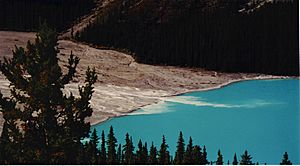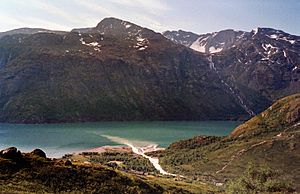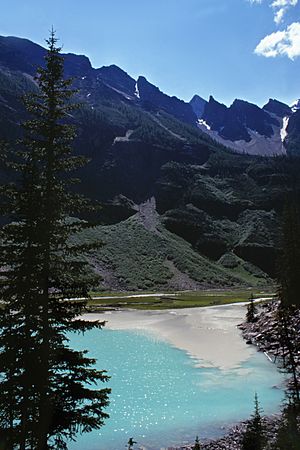Rock flour facts for kids

Rock flour, or glacial flour, consists of clay-sized particles of rock, generated by glacial erosion or by artificial grinding to a similar size. Because the material is very small, it is suspended in river water making the water appear cloudy. If the river flows into a glacial lake, the lake may appear turquoise in color as a result. Examples of this are Lake Louise, Canada and Gjende lake in Norway.
Agricultural use
Some agronomists believe that rock flour has a powerful effect in restoring trace minerals to soil. An early experimeter was the German miller Julius Hensel, author of Bread from Stones, who reported successful results with steinmehl (stonemeal) in the 1890s. His ideas were not taken up through technical limitations and, according to proponents of his method, opposition from the champions of conventional fertilisers.
Images for kids
-
Rock flour intensifies the water's hue at Hokitika Gorge on the West Coast of New Zealand





